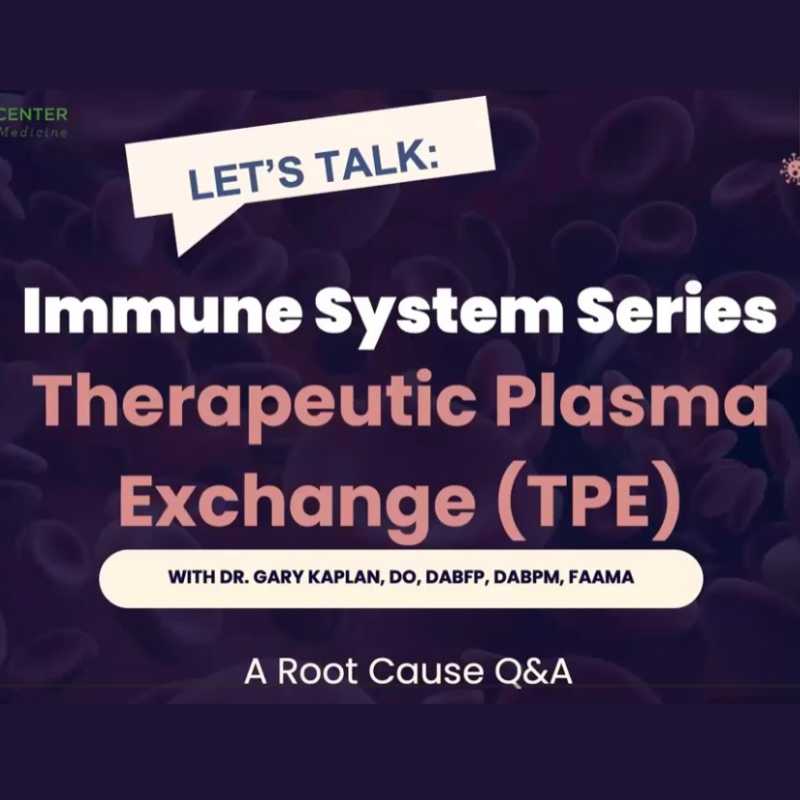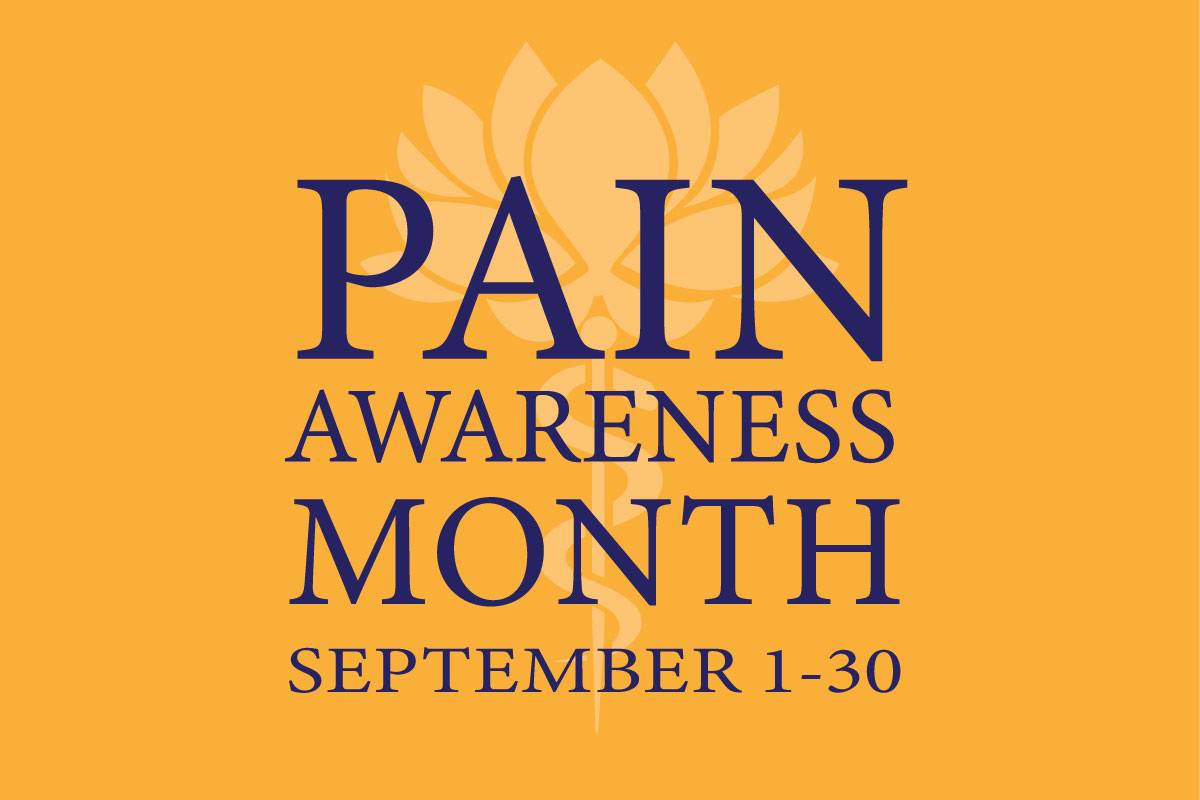
5 Ways We Can Keep Your Immune System Strong
December 10, 2025/by Kaplan Center
Want to Take Your Workout to the Next Level Next Year? These Tips Can Help
December 8, 2025/by Kaplan Center
Dr. Kaplan’s Dos and Don’ts of the Holiday Season
December 3, 2025/by Kaplan Center
Let’s Talk Webinar – A Root Cause Q&A
December 2, 2025/by Kaplan Center
Navigating Holiday Meals with Gut Issues: Simple Tips for a Comfortable Season
December 1, 2025/by Chardonée Donald, MS, CBHS, CHN, CNS, LDN
Craniosacral Therapy for TMJ | Say Goodbye to the Daily Grind
November 19, 2025/by Patricia Alomar, M.S., P.T.
From Compassionate Care to Personal Healing: A Letter to My Patients
November 18, 2025/by Kaplan Center
8 Steps to a Healthier Gut—and a Longer, Healthier Life
November 18, 2025/by Kaplan Center
Mid-Life Irritability & Fatigue Improved by Hormonal Balancing
November 13, 2025/by Lisa Lilienfield, MD
From Challenges to Change: Dr. Kaplan on Healthcare’s Biggest Challenges
October 29, 2025/by Kaplan Center
Overlooked Dangers of Mold Exposure and How to Stay Safe – Dr. Kaplan Talks to WUSA9
October 27, 2025/by Kaplan Center
Let’s ‘Fall’ Into Wellness: A Nutritionist-Approved Immune-Boosting Recipe for Cold and Flu Season
October 13, 2025/by Chardonée Donald, MS, CBHS, CHN, CNS, LDN
PANS/PANDAS – When Sudden Symptoms Signal Something More
October 9, 2025/by Kaplan Center
Beating Burnout, A Nutritionist’s Perspective
October 1, 2025/by Chardonée Donald, MS, CBHS, CHN, CNS, LDN
3 Things That Can Happen After Stopping GLP-1s
September 11, 2025/by Chardonée Donald, MS, CBHS, CHN, CNS, LDN
What Families Need to Know About COVID and Flu Season
September 3, 2025/by Kaplan Center
September is Pain Awareness Month
September 1, 2025/by Kaplan Center
Dr. Kaplan Spoke to Northern Virginia Magazine About COVID, Flu, and Immunity — Here’s What You Should Know
August 14, 2025/by Kaplan Center
“Why Do I Feel Like Crap?”: The Overlap Between Long COVID and Perimenopause
July 30, 2025/by Kaplan Center
Why People Are Turning to EMDR (and Why You Might Want to Too)
July 23, 2025/by Kaplan CenterAre you looking to improve your overall wellness?
Personalized care you can trust.
Our integrative, non-surgical treatment approach is highly successful in maintaining wellness and also treating chronic pain and illness. For more than 30 years, we have delivered superior, cutting-edge health care in the Washington, DC area.
QuickLinks
Contact Information
Tel: 703-532-4892
Fax: 703-237-3105
6829 Elm Street, Suite 300
McLean, Virginia 22101
Map It
Hours of Operation
Mon – Thu : 8 am – 5 pm, ET
Fri : 8 am – 12 pm, ET
Dr. Gary Kaplan on "How To Be Mentally & Physically Healthy for Life"
/in Inflammation, Mental Health, News, Wellness/by Kaplan CenterAbout 100 million Americans live with some form of chronic pain — more than the combined number of those with diabetes, heart disease, and cancer. In this interview with Joe Polish and Dean Jackson, Dr. Kaplan reveals his single-point-of-origin approach: seemingly unrelated symptoms of chronic pain and depression actually have a single, neurological basis.
Dr. Kaplan draws on patient stories and cutting-edge research to reveal that physical pain and emotional pain are manifestations of the same inflammation, brought on by tiny microglial cells found in the brain and spinal cord. And, in order to see greater success in treatment we must stop thinking of pain and depression as diseases, but rather symptoms of this inflammation.
Dr. Kaplan explains:
Dr. Kaplan stresses that “while pain is not optional, your suffering is,” and offers 3 daily actions to be mentally and physically healthy for life.
To listen to Dr. Kaplan’s interview please click on the play button below.
Achieving "Wellness"
/in Lifestyle/by Kaplan Center4 Things Your Body Wants You to Know
by Julia Westbrook.
Wellness is well within your grasp, as long as you know what you’re looking for.
“Wellness” is always the goal when it comes to health: Boost your mental well-being; feel great every day; relieve pain, symptoms, and stress! While the idea of wellness paints a pretty picture, for many it seems like nothing but a dream without a concrete path for achievement.
However, there’s good news: Wellness isn’t a myth. You just need the right definition and the right tools. We sat down with Gary Kaplan, DO, author of Total Recovery, and speaker at Prevention Magazine’s R3 Summit for wellness to learn how many of us are missing the boat when it comes to our health and what we can do to fix that.
Defining ‘Wellness’
Dr. Kaplan has a clear understanding of wellness, one that considers your unique situation, abilities, and disabilities. “Optimal wellness is about being able to engage in life fully,” says Dr. Kaplan.
“And you may still have some disability and you may still have some pain problems, but the fact is, you are at the absolute best health you can be, even with these things — so that you’re doing things that have meaning for you in life.”
Why Do We Miss the Boat?
When including our individual limitations, Dr. Kaplan creates a picture of wellness that is attainable. For instance, if running is meaningful to a person with arthritis, he or she can achieve the wellness to do so — but only with a plan that addresses, not ignores, his or her pain.
Dr. Kaplan explains that ignoring the signals that our bodies send out is the reason many people don’t hit their personal bests, even though the definition of wellness already includes our shortcomings. “So you’re taking lots of anti-inflammatory medications in order to push through an activity. When you’re doing that, you’re not listening to your body, and the other thing is you’re actually harming your body because regular use of the anti-inflammatory medications actually results in ulcers in the small intestine.”
“It’s about not pushing through,” he explains, “but paying attention.”
The No. 1 Thing You Can Do Today
The simple solution is then obvious, he says: Listen to your body. “We can step back and really design our lives such that we’re respectful of what we need and who we are.”
Of course, many of us are really bad at doing that. Dr. Kaplan blames a lifestyle that keeps us constantly bombarded with demands. “We’re connected 24/7,” he says. “One of the things I have people do is move their phones out of their bedroom so that bedtime is for sleep. Simple, easy. Recharge that phone in the hall, but not in the bedroom.”
Shutting off the bells and whistles gives you the opportunity to check in with yourself and your loved ones, strengthening your health and your relationships. “It’s a matter of unplugging and taking some time for quiet; taking some time to have a real connection time with your family and friends. We don’t do enough of that because we’re rushing around too much.” Without the pressures and distractions, you may finally hear what your body is trying to tell you.
Four Things Your Body Wants You to Know
Dr. Kaplan is a speaker at Prevention’s R3 Summit, a wellness weekend designed to help people revive, refresh, and reinvent their lives and their health.
“I’m really privileged and very excited to be attending the R3 program,” says Dr. Kaplan. “Most of my work is with people who have end-stage disease and have been sick for a very long time. I’m glad for the opportunity to explain to people that it doesn’t have to be this way: We can prevent many of the illnesses that we suffer from happening. So being able to get to people and keep them healthy is really a very exciting prospect for me.”
The R3 summit revolves around six pillars for wellness — Healthy Epicurean, Health, Beauty, Peak Performance, Mind-Body, and Happiness — four of which Dr. Kaplan stresses in his own practice and shared with us.
Peak Performance
“The thing you want to make sure you’re guarding is your sleep,” Dr. Kaplan says. “People think that they can get by on six hours of sleep. People can’t get by on six hours of sleep.”
He cites a study that reduced people’s sleep schedules from eight hours to six hours. “At the end of two weeks, everyone will tell you that they’re getting enough sleep,” he says. “However, if you measure performance in the people who are only getting six hours, their ability to focus, concentrate, their motor skills, reaction times are decreasing to the point that they’re actually performing at the level of being drunk.”
Mind-Body
“Meditation is not simply about relaxation; it’s really about brain rejuvenation,” Dr. Kaplan explains. “It helps improve resilience in the brain.”
It’s not just your yoga teacher who’s interested in meditation. Dr. Kaplan points out that the military is researching this age-old practice. “The military has been looking into this to see if they can improve decision making in the field and also prevent the occurrence of post-traumatic stress syndrome. This is hard science.”
Healthy Epicurean
Dr. Kaplan circles back on the idea that we’re not listening to ourselves, especially when it comes to what we eat. “If you’re eating foods that you shouldn’t be eating and you’re putting up with gas, bloating — this kind of low-grade discomfort — it’s telling us that there’s stuff brewing that needs to be addressed.”
“Helping people clean up their diets and address these early warning signs becomes extremely important. Pay attention to ourselves, listen to ourselves, and help us restore our health before we get to the point of being really sick.” (The first step? Embark on an elimination diet to find out what’s really bothering you.)
Health
You might want to think of weight loss as a secondary benefit of exercising because it’s your brain that really gets a workout. “Inflammation occurs in the brain anytime that there has been damage to nerve cells in the brain, and there is a wide range of things that can cause that damage,” he explains. “So focusing on the repair process, we know that exercise down-regulates the inflammatory cells of the central nervous system and actually helps regenerate brain tissue.”
Published date: October 7, 2014
www.RodaleNews.com
RodaleNews.com Features Dr. Kaplan’s "3 Tips to Ease Inflammation in the Brain"
/in News/by Kaplan CenterDo You Suffer From Sleep Drunkenness?
by Leah Zerbe, www.RodaleNews.com, September 3, 2014
Do you find yourself picking up the phone when your alarm clock goes off in the morning? Do you know someone who actually turns violent when they are suddenly awakened? A disorder called “sleep drunkenness,” which affects about 15 percent of the population, could be to blame, according to a study published in the journal Neurology.
The disorder may, in fact, be as prevalent as affecting one in every seven people. Sleep drunkenness disorder involves confusion or inappropriate behavior during or following arousals from sleep, either during the first part of the night or in the morning. An episode, often triggered by a forced awakening, may even cause violent behavior during sleep or amnesia of the episode. “These episodes of waking up confused have received considerably less attention than sleepwalking even though the consequences can be just as serious,” says study author Maurice M. Ohayon, MD, DSc, Ph.D., professor of psychology and behavioral science at Stanford University School of Medicine in Palo Alto, CA.
For the study, 19,136 people age 18 and older from the general U.S. population were interviewed about their sleep habits and whether they had experienced any symptoms of the disorder.
Participants were also asked about mental illness diagnoses and any medications they took. The study found that 15 percent of the group had experienced an episode in the last year, with more than half reporting more than one episode per week. In the majority of cases—84 percent—people with sleep drunkenness also had a sleep disorder, had a mental health disorder or were taking psychotropic drugs such as antidepressants.
People with depression, bipolar disorder, alcoholism, panic disorder, or post-traumatic stress disorder and anxiety were more likely to experience sleep drunkenness. But about 30 percent of people with the disorder reported taking psychotropic drugs like antidepressants. “The first question to ask is whether ‘sleep drunkenness’ is a symptom of a more serious underlying disorder,” says Gary Kaplan, DO, author of Total Recovery: Breaking the Cycle of Chronic Pain and Depression. “The condition is highly associated with mental health disorders and sleep disorders, all of which are symptoms of an inflammatory condition in the brain.”
Dr. Kaplan says physicians (inappropriately) are oriented to treat these conditions as diseases and not look for an underlying cause. “In the case of sleep apnea, also highly associated with ‘sleep drunkenness,’ inadequately treated sleep apnea causes the brain to be deprived of oxygen and results in the death of brain cells and chronic inflammation in the brain. Properly treating the sleep apnea should resolve the problem.” (A recent study even linked depression to a higher risk of Alzheimer’s disease.)
He says he’s concerned that physicians are too quick to treat the symptom and don’t take the time to properly identify the underlying cause. “The majority of people who suffer with this condition were taking antidepressants; there is a wide range of conditions for which antidepressants are prescribed, including for the treatment of sleep disorders, migraines, and other chronic pain conditions, as well as mental health issues,” he says. “I have listened to many patients who take these medications frequently complain of ‘feeling hung over in the morning,’ completely consistent with the finding in this study.”
For instance, Dr. Kaplan says one of his patients had depression and sleep disturbances consistent with sleep drunkenness, but he really had undiagnosed Lyme disease. “Treatment of the Lyme resulted in complete resolution of symptoms,” he says.
In another case, Dr. Kaplan saw a teenager with a severe depressive disorder who was taking multiple antidepressants and complaining of being “hung over” on the medication. It turned out he had undiagnosed celiac disease. “Off gluten, the depression resolved and his sleep returned to normal,” Dr. Kaplan explains. “It took around a year for him to get to fully recover because it takes time for the brain to heal.
“I treat depression and all sleep disturbances as a symptom of underlying inflammation in the brain,” Dr. Kaplan says. “You need to take a detailed history and do the appropriate testing to determine exactly what is the cause and more frequently are the causes of the symptom, in this case, depression.”
Dr. Kaplan’s 3 Tips to Ease Inflammation in the Brain:
“Are too many people taking antidepressants? Yes. We are too quick to treat symptoms and not look for the underlying cause,” Dr. Kaplan adds. “One of my first-line approaches to help people improve their sleep without medication is acupuncture and, if appropriate, herbs.”
Published date: Sept 3, 2014